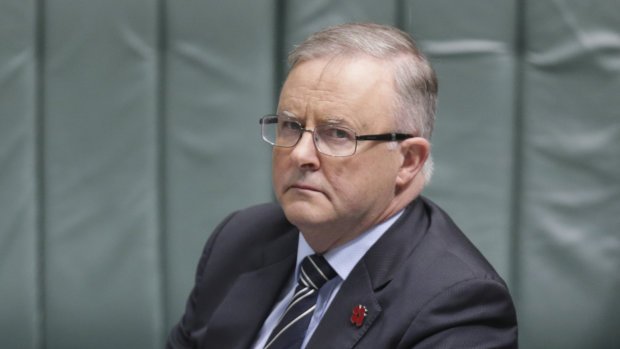It was 13 years ago last week Kevin Rudd as the then-Labor opposition leader announced ‘This sort of reckless spending must stop'. He said it at the launch of the ALP campaign for the 2007 federal election in response to the claims the Coalition's election promises were extravagant "middle-class welfare".
 Unkind critics of Rudd might say that was one of his few positive contributions to Australian public policy. Rudd succeeded in changing the narrative of the economic debate in the country ― at least until the onset of the GFC. Whether he actually ever was the "fiscal conservative" he made himself out to be will be is one of the mysteries of Rudd's prime ministership. As a "fiscal conservative" Rudd won an easy election victory a fortnight later, and after a few months in The Lodge had a 71 percent approval rating.
Unkind critics of Rudd might say that was one of his few positive contributions to Australian public policy. Rudd succeeded in changing the narrative of the economic debate in the country ― at least until the onset of the GFC. Whether he actually ever was the "fiscal conservative" he made himself out to be will be is one of the mysteries of Rudd's prime ministership. As a "fiscal conservative" Rudd won an easy election victory a fortnight later, and after a few months in The Lodge had a 71 percent approval rating.
It's a measure of how much Australia has changed in 13 years that today it's impossible to conceive of any opposition leader, or for that matter any prime minister or premier winning the popular vote by criticising, to use Rudd's words, their opponent's "irresponsible spending spree".
"Irresponsible spending sprees" aren't affordable at the best of times, but they were a lot more affordable in 2007 than they are now. Then, Australian government gross debt to GDP was 9.7 percent ― now it is 45.1 percent.
The point is that opposition leaders can sometimes be useful. And sometimes they can influence the terms of the debate. Occasionally opposition leaders can be too successful in shaping the policy conversation. John Hewson in 1993, and Bill Shorten in 2019 made themselves and their policies seemingly the central issues of the elections they were fighting.
If Albanese's performance is judged solely against the two-party preferred polls he's not doing poorly, for Labor is within a few percentage points of the Coalition. But while the Coalition has to guard against arrogance, there's not a Liberal or National MP who doesn't believe, all things being equal, that when Albanese is confronted on the election trail by as formidable a campaigner as the Prime Minister, Labor's chances will wither and die.
The problem for Labor, and the problem for good policy-making in Australia is that at the moment Albanese is the wrong person for the job. It's understandable why he does it, and it's because he thinks his constituency wants him to do it, but on nearly every major policy issue Albanese equates the government spending more money with "reform".
"Childcare" now appears to have become Labor's signature policy area and Albanese's "reform" amount to the area amounts to removing the $10,560 annual subsidy cap.
On Wednesday, the Reserve Bank of Australia governor Philip Lowe gave a speech urging the Morrison government to undertake "big-signature moves" to boost productivity.
What Lowe said is not entirely wrong ― even if there's nothing easier than telling someone else what to do. In this case though the Coalition is the wrong target. It's the Labor Party that's the problem. The sort of "big-signature moves" Lowe is talking about, and in particular industrial relations reform that Lowe singled out would most likely be completely opposed by Labor.
The Coalition hasn't yet recovered from the ALP/ACTU WorkChoices campaign against John Howard in 2007. The paradox is that neither has Labor. The ALP seems to be forever looking for that WorkChoices magic elixir to deliver it into government again. That elixir is elusive, which explains why the ALP has lost the last three federal elections.
Albanese was a minister for six years and been in Parliament for nearly 25 years. From time to time he's had some not-uninteresting ideas but it would be a stretch to describe him as a policy "reformer". Albanese is best known for his remark: "I like fighting Tories. That's what I do".
It might be that what Labor needs, and indeed what Australia needs is a leader who likes fighting Tories a bit less and who likes policy a bit more.
After all, a few months after becoming prime minister, the last Labor leader to win government from opposition was described in The Sydney Morning Herald as proving "you can be a policy geek, and win".
No comments:
Post a Comment